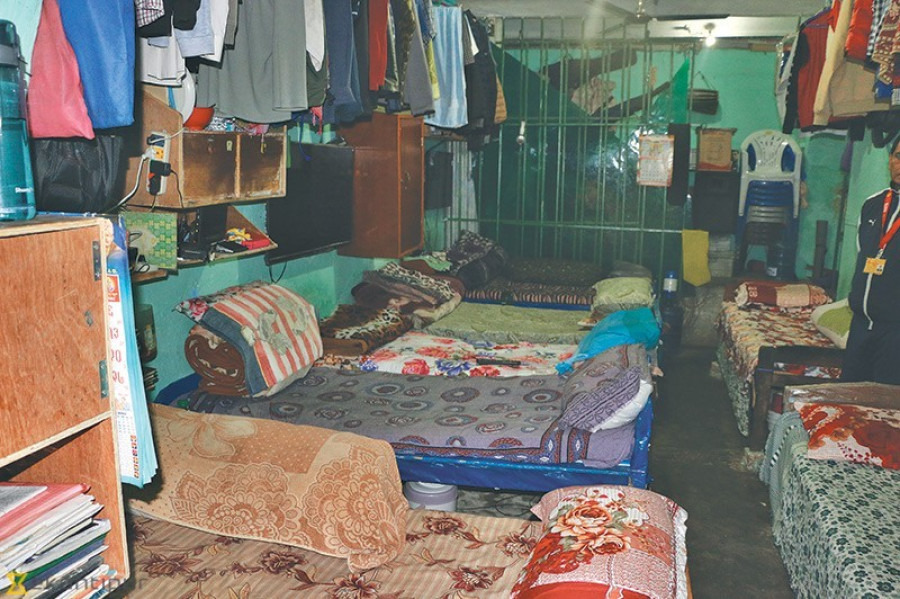Editorial
Prisons need to be decongested immediately
Overcrowding and inhumane conditions are the hallmarks of Nepali prisons
Overcrowded prisons is a long-standing issue. Yet, it has been summarily overlooked. According to a finding made public by the Office of the Attorney General, the country’s police cells and prisoners are in dire conditions. Regrettably, this does not come as a surprise. An initial assessment based on their findings from prisons, police cells and juvenile detention centres in 24 districts reveals conditions of overcrowding in prisons and lack of basic care of prisoners. The report maintains that the conditions of the prison cells and prisoners need to be improved urgently to ensure that the ‘human dignity’ of those living there is protected. Cramped conditions in prison work against the prisoner’s right to good health and dignity. Yet, it is unedifying to note that the concerned authorities have barely granted it the attention it warrants.
As reported in this paper, according to the initial findings of the monitoring team of the Office of the Attorney General, some of the most dire conditions for prisoners were in several prisons in the Tarai districts, like Banke and Parsa. The inmates there were found living in 'inhumane conditions' struggling for clean water and food inside crammed, dilapidated structures.
Poor conditions, overcrowding, diet and medical care, and physical abuse are all issues that currently plague our penitentiaries. Media reports highlight cases of physical abuse of prisoners, sometimes leading to grievous injury or even death; the custodial death of Ram Manohar Yadav in September 2018 being the most recent example.
There are currently 74 prisons that are housing around 21,000 inmates against their capacity of 10,608. An excessive prison population creates problems of hygiene, sanitation, management and discipline. To address this issue, the Department of Prison Management decided to build 17 new prisons at an estimated cost of Rs1.677 billion. The government of Nepal also bought 535 ropanis of land to build an open prison with a capacity of 5,000 inmates. But nothing has come of it yet. Besides improving the infrastructure, of equal concern is the available staff strength and the level of training they receive.
The Prison Act 1963 guides our prisons. But the act has yet to be amended since it was formed five decades ago. Prison inmates have to make do with a daily allowance of a measly Rs45 and 700 grams of rice year after year. The allowance was increased from Rs30 a day in 2006 to the current amount. The Office of the Attorney General, National Human Rights Committee and human rights organisations like the Informal Sector Service Centre have repeatedly highlighted similar concerns of overcrowding and inhumane living conditions of prisoners.Prison management and correctional administration are important areas of policymaking and research. The concerned authorities must divert attention to this critical issue immediately.




 9.89°C Kathmandu
9.89°C Kathmandu














